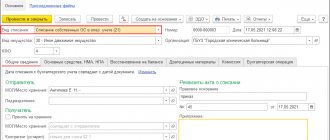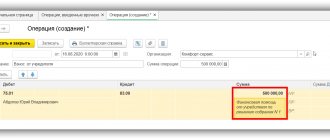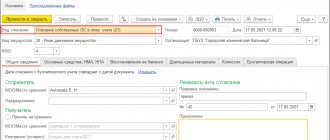1. Property transferred into trust management, as well as property acquired under a trust management agreement, is subject to taxation (with the exception of property constituting a mutual investment fund) from the trust management founder.
2. The property constituting a mutual investment fund is subject to taxation by the management company. In this case, the tax is paid from the property that makes up this mutual investment fund.
3. Property leased, including under a financial lease (leasing) agreement, is subject to taxation by the lessor (lessor).
- Article 377. Features of determining the tax base within the framework of a simple partnership agreement (agreement on joint activities), an investment partnership agreement
- Article 378.1. Features of property taxation during the execution of concession agreements
Commentary to Art. 378 Tax Code of the Russian Federation
According to paragraph 1 of Article 1012 of the Civil Code of the Russian Federation, under a property trust management agreement, one party (the management founder) transfers property to trust management for a certain period of time to the other party (the trustee), and the other party undertakes to manage this property in the interests of the management founder or the person specified by him ( beneficiary).
Legal features of the property trust management agreement:
— transfer of property into trust management does not entail the transfer of ownership of it to the trustee (clause 1 of Article 1012 of the Civil Code of the Russian Federation);
— when carrying out trust management of property, the trustee has the right to perform any legal and actual actions in relation to this property in accordance with the trust management agreement in the interests of the beneficiary.
Restrictions on individual actions for trust management of property can only be provided for by law or a specific concluded agreement (Clause 2 of Article 1012 of the Civil Code of the Russian Federation);
— transactions with property transferred to trust management are carried out by the trustee on his own behalf, indicating that he acts as such a manager.
In practice, this means that when concluding transactions orally, the other party knows about the status of the trustee, and in written documents, after the name of the trustee, the note “D.U.” is made. (Clause 3 of Article 1012 of the Civil Code of the Russian Federation);
— the object of trust management can be any property, except for property under economic control or operational management (Article 1013 of the Civil Code of the Russian Federation);
- a property trust management agreement must be concluded in writing, and a real estate trust management agreement must be concluded in the form provided for a real estate sale agreement, i.e. in some cases subject to state registration (Article 1017 of the Civil Code of the Russian Federation);
— the term of trust management cannot exceed five years, however, for certain types of property, the law may establish a different maximum period for the validity of the property trust management agreement (clause 2 of Article 1016 of the Civil Code of the Russian Federation).
A trustee who has not shown due care for the interests of the beneficiary or the founder of the management during the trust management of property, in accordance with paragraph 1 of Article 1022 of the Civil Code of the Russian Federation, compensates the beneficiary for lost profits during the trust management of the property, and the founder of the management for losses caused by loss or damage to the property, taking into account its natural wear and tear, as well as lost profits.
When reflecting business transactions in accounting and preparing financial statements when implementing a property trust management agreement, you should be guided by Order of the Ministry of Finance of Russia dated November 28, 2001 N 97n.
According to Article 10 of the Federal Law of November 29, 2001 N 156-FZ “On Investment Funds” (hereinafter referred to as Law N 156-FZ), a mutual investment fund is a separate property complex consisting of property transferred into trust management of a management company by the founder ( founders) of trust management, and from the property received in the process of such management, the share in the ownership of which is certified by a security issued by the management company.
The procedure for taxation of mutual investment funds is explained in the letter of the Ministry of Taxation of Russia N 01-3-03/666, the Ministry of Finance of Russia N 01-СШ/45 dated June 10, 2004.
The property that makes up a mutual investment fund is the common property of the owners of investment shares and belongs to them by the right of common shared ownership.
In accordance with Article 378 of the Tax Code of the Russian Federation, property transferred into trust management, as well as property acquired under a trust management agreement, is subject to taxation from the trust management founder.
Thus, the taxpayer for corporate property tax in relation to the property constituting a mutual investment fund is the organizations recognized as the founders of trust management - the owners of investment shares.
Owners of investment shares calculate and pay corporate property tax in relation to the property transferred by them to the mutual investment fund.
In relation to property acquired and (or) created within the framework of a mutual investment fund, tax is calculated and paid by organizations that own investment shares in proportion to the value of their investment shares (its share in the common property of the shareholders).
In addition, the management company that keeps records of the property of a mutual investment fund is obliged, for tax purposes, to inform each taxpayer who owns investment shares information about the residual value of the property and its share in the total property of the shareholders.
It should be taken into account that in accordance with Article 15 of Law N 156-FZ, at the request of the justice institution that registers rights to real estate, the person maintaining the register of owners of investment shares is obliged to draw up a list of owners of investment shares containing data about them provided for by the specified Federal law and submit it to the justice institution.
Consequently, the basis for the assessment of tax will be information about the owners of buildings, premises and structures, established on the basis of data from the personal accounts of investment unit owners in the register of investment unit owners and investment unit securities accounts provided to the tax authorities by the authorities carrying out state registration of rights to real estate.
Clause 2 of Article 378.2 of the Tax Code of the Russian Federation
A law of a subject of the Russian Federation establishing the specifics of determining the tax base based on the cadastral value of real estate objects specified in subparagraphs 1, 2 and 4 of paragraph 1 of this article can be adopted only after the subject of the Russian Federation approves in the prescribed manner the results of determining the cadastral value of real estate objects . (As amended by Federal Law dated October 4, 2014 No. 284-FZ)
After the adoption of the law specified in this paragraph, the transition to determining the tax base in relation to real estate objects specified in subparagraphs 1, 2 and 4 of paragraph 1 of this article, as their average annual value, is not allowed. (As amended by Federal Law dated October 4, 2014 No. 284-FZ)
Judicial practice under Article 378 of the Tax Code of the Russian Federation
Ruling of the Supreme Court of the Russian Federation dated December 16, 2019 N 305-ES19-21146 in case N A40-267751/2018
When refusing to satisfy the stated demands, the courts, guided by the provisions of Articles 375, 378 - 378.2 of the Tax Code of the Russian Federation, Federal Law dated 29.07. 1998 N 135-FZ “On Valuation Activities in the Russian Federation” and Decree of the Government of Moscow dated November 21, 2014 N 688-PP, were based on the lack of rights of the taxpayer to independently change the cadastral value when drawing up a declaration and calculating the tax base for the property tax of organizations property and the arbitration court - to assess the correctness and validity of the determination of the cadastral value when considering a dispute about the legality of the decision of the tax authority, adopted based on the results of a desk audit of such a declaration.
Appeal ruling of the Judicial Collegium for Administrative Cases of the Supreme Court of the Russian Federation dated July 26, 2019 N 5-APA19-55
Real estate objects in respect of which a subject of the Russian Federation may establish specifics for determining the tax base based on the cadastral value are named in subparagraphs 1 and 2 of Article 378.2 of the Tax Code of the Russian Federation, and the conditions for recognizing a real estate object as an administrative and business center, shopping center (complex) , office, retail facility, public catering and consumer services facility are established by paragraphs 3, 4, 5 of Article 378 of the Tax Code of the Russian Federation.
Appeal ruling of the Judicial Collegium for Administrative Cases of the Supreme Court of the Russian Federation dated December 11, 2019 No. 5-APA19-166
Based on the provisions of Article 378 of the Tax Code of the Russian Federation, the tax base is determined, taking into account the specifics established by this article, as the cadastral value of property in relation to the following types of real estate recognized as the object of taxation: administrative and business centers and shopping centers (complexes) and premises in them (subparagraph 1 of paragraph 1).
Appeal ruling of the Judicial Collegium for Administrative Cases of the Supreme Court of the Russian Federation dated April 17, 2019 No. 5-APA19-21
LLC “On the Property Tax of Organizations” and Article 378 of the Tax Code of the Russian Federation are characteristics of objects in respect of which the tax base for the property tax of organizations is calculated based on the cadastral value. The inclusion of this building in the lists unlawfully imposes on the administrative plaintiff the obligation to pay an inflated amount of corporate property tax.
Clause 1 of Article 378.2 of the Tax Code of the Russian Federation
The tax base is determined, taking into account the specifics established by this article, as the cadastral value of property in relation to the following types of real estate recognized as an object of taxation: (As amended by Federal Law No. 401-FZ of November 30, 2016)
paragraph 1 administrative and business centers and shopping centers (complexes) and premises in them;
clause 2 non-residential premises, the purpose, permitted use or name of which, in accordance with the information contained in the Unified State Register of Real Estate, or documents of technical registration (inventory) of real estate, provides for the placement of offices, retail facilities, public catering and consumer services, or which actually are used to accommodate offices, retail facilities, catering facilities and consumer services; (As amended by Federal Law No. 401-FZ dated November 30, 2016)
clause 3, objects of real estate of foreign organizations that do not carry out activities in the Russian Federation through permanent representative offices, as well as objects of real estate of foreign organizations that are not related to the activities of these organizations in the Russian Federation through permanent representative offices;
clause 4 residential buildings and residential premises that are not taken into account on the balance sheet as fixed assets in the manner established for accounting. (Subclause introduced - Federal Law dated October 4, 2014 No. 284-FZ)
Article 378 of the Tax Code of the Russian Federation. Features of taxation of property transferred to trust management
According to paragraph 1 of Article 1012 of the Civil Code of the Russian Federation, under a property trust management agreement, one party (the management founder) transfers property to trust management for a certain period of time to the other party (the trustee), and the other party undertakes to manage this property in the interests of the management founder or the person specified by him ( beneficiary).
Legal features of the property trust management agreement:
- transfer of property into trust management does not entail the transfer of ownership of it to the trustee (clause 1 of Article 1012 of the Civil Code of the Russian Federation);
- When carrying out trust management of property, the trustee has the right to perform any legal and actual actions in relation to this property in accordance with the trust management agreement in the interests of the beneficiary.
- Restrictions on individual actions for trust management of property can only be provided for by law or a specific concluded agreement (Clause 2 of Article 1012 of the Civil Code of the Russian Federation);
- the trustee makes transactions with property transferred into trust management on his own behalf, indicating that he acts as such a manager.
- In practice, this means that when concluding transactions orally, the other party knows about the status of the trustee, and in written documents, after the name of the trustee, the note “D.U.” is made. (Clause 3 of Article 1012 of the Civil Code of the Russian Federation);
- the object of trust management can be any property, except for property under economic management or operational management (Article 1013 of the Civil Code of the Russian Federation);
- the property trust management agreement must be concluded in writing, and the real estate trust management agreement must be concluded in the form provided for the real estate sale agreement, i.e. in some cases subject to state registration (Article 1017 of the Civil Code of the Russian Federation);
- the term of trust management cannot exceed five years, however, for certain types of property, the law may establish a different maximum period for the validity of the property trust management agreement (clause 2 of Article 1016 of the Civil Code of the Russian Federation).
- A trustee who has not shown due care for the interests of the beneficiary or the founder of the management during the trust management of property, in accordance with paragraph 1 of Article 1022 of the Civil Code of the Russian Federation, compensates the beneficiary for lost profits during the trust management of the property, and the founder of the management for losses caused by loss or damage to the property, taking into account its natural wear and tear, as well as lost profits.
- When reflecting business transactions in accounting and preparing financial statements when implementing a property trust management agreement, you should be guided by Order of the Ministry of Finance of Russia dated November 28, 2001 N 97n.
According to Article 10 of the Federal Law of November 29, 2001 N 156-FZ “On Investment Funds” (hereinafter referred to as Law N 156-FZ), a mutual investment fund is a separate property complex consisting of property transferred into trust management of a management company by the founder ( founders) of trust management, and from the property received in the process of such management, the share in the ownership of which is certified by a security issued by the management company.
The procedure for taxation of mutual investment funds is explained in the letter of the Ministry of Taxation of Russia N 01-3-03/666, the Ministry of Finance of Russia N 01-СШ/45 dated June 10, 2004.
The property that makes up a mutual investment fund is the common property of the owners of investment shares and belongs to them by the right of common shared ownership.
In accordance with Article 378 of the Tax Code of the Russian Federation, property transferred into trust management, as well as property acquired under a trust management agreement, is subject to taxation from the trust management founder.
Thus, the taxpayer for corporate property tax in relation to the property constituting a mutual investment fund is the organizations recognized as the founders of trust management - the owners of investment shares.
Owners of investment shares calculate and pay corporate property tax in relation to the property transferred by them to the mutual investment fund.
In relation to property acquired and (or) created within the framework of a mutual investment fund, tax is calculated and paid by organizations that own investment shares in proportion to the value of their investment shares (its share in the common property of the shareholders).
In addition, the management company that keeps records of the property of a mutual investment fund is obliged, for tax purposes, to inform each taxpayer who owns investment shares information about the residual value of the property and its share in the total property of the shareholders.
It should be taken into account that in accordance with Article 15 of Law N 156-FZ, at the request of the justice institution that registers rights to real estate, the person maintaining the register of owners of investment shares is obliged to draw up a list of owners of investment shares containing data about them provided for by the specified Federal law and submit it to the justice institution.
Consequently, the basis for the assessment of tax will be information about the owners of buildings, premises and structures, established on the basis of data from the personal accounts of investment unit owners in the register of investment unit owners and investment unit securities accounts provided to the tax authorities by the authorities carrying out state registration of rights to real estate.




